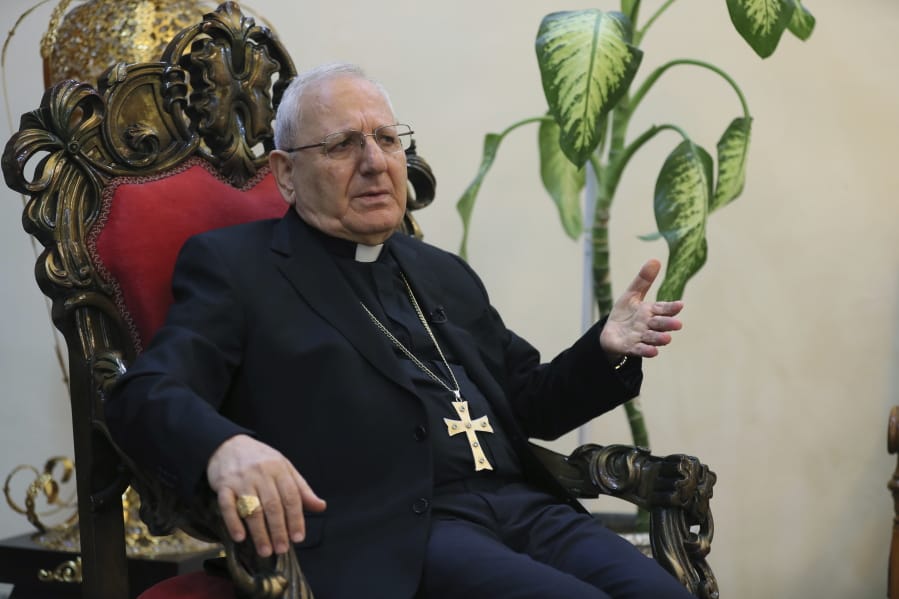BAGHDAD — The Christmas tree in the middle of a central Baghdad plaza occupied by anti-government protesters is bare, save for portraits of those killed under fire from security forces. A tribute, the demonstrators explained, to a recent decision by Iraq’s Christians to call off seasonal festivities to honor the losses.
Leaders of Iraq’s Christians unanimously canceled Christmas-related celebrations in solidarity with the protest movement — but the aims of their stance go deeper than tinsel and fairy lights. Slogans of a united Iraq free of sectarianism resonate deeply within the community, which since the 2003 fall of Saddam Hussein has fearfully observed its diminishing influence amid growing Shiite-dominated politics shaping state affairs. The Christians have also left Iraq in huge numbers over the years, after being targeted by militant Sunni groups such as al-Qaida and the Islamic State group.
On a recent visit to Tahrir Square, the epicenter of the protest movement, Cardinal Louis Raphael Sako, patriarch of the Chaldean Church in Iraq, said he was moved.
“Now there you feel you are Iraqi,” he said in an interview with The Associated Press. “A new Iraq is being born.”
The protests erupted in Baghdad and the predominantly Shiite southern provinces on Oct. 1, when thousands of Iraqis first took to the streets calling for sweeping political reforms and the end of Iran’s influence in Iraqi affairs. At least 400 have died at the hands of security forces and unidentified assailants firing live ammunition and tear gas to disperse the demonstrations.
“Morally and spiritually we cannot celebrate in such an atmosphere of tension … it’s not normal to celebrate our joy and happiness while others are dying. That doesn’t work,” said Sako. Chaldeans are the predominant Christian denomination in the country.
He called on the government and parliament to listen to the demands of the protesters and to find suitable solutions through dialogue. “The military solution is bad,” he said.
Under the order of the church, holiday celebrations will be limited to prayers, and money budgeted for expensive street decorations and festivities for the community will be donated to funds supporting wounded protesters, Sako said.
Christmas decorations were forbidden within the fine interiors of Baghdad’s Chaldean Patriarchate.
“We will have no other celebration, we cannot make a big feast when our country is a in a critical situation,” he added.
But Iraq’s Christians support the leaderless protest movement for other reasons, said church officials.
Falling demographics capture their existential anxieties, explained Sako. Christians numbered around 1.5 million before the U.S. invasion 16 years ago, roughly 6 percent of the population. Today the Christian population is believed to be less than a third of that figure, though accurate estimates are hard to come by given the lack of census data in Iraq.



